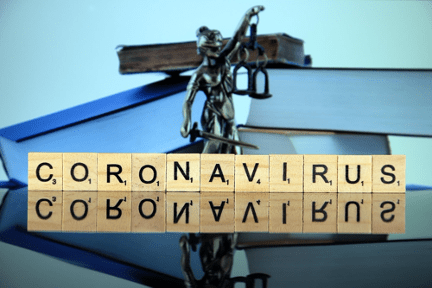The coronavirus pandemic brought a new level of uncertainty and anxiousness to all of us. Every moment — whether you’re out in public places or hunkered down social distancing at home — the fear of contracting the virus lingers. You’ve probably read article after article on what you can do to protect yourself and your family.
But what about how to protect yourself and your loved ones legally and financially? Are you prepared and protected in the unwanted event that you should pass away? We’re talking about having a will, power of attorney, advance directives, and designated beneficiaries for investments and accounts.
Let’s walk through the crucial areas you need to double check during times of uncertainty, especially right now.
Wills
Do you have a will? If so, is it up-to-date? Now is the perfect time to get your estate planning in order. No one wants to think about death or leaving loved ones behind, but during a pandemic, it’s better to plan for the worst and hope of the best.
Without an up-to-date will, the state can decide what to do with your assets if you pass away. That means your family could be left with nothing. If you create a will, you can dictate which of your assets goes to whom. This provides peace of mind from knowing your loved ones will be taken care of when you’re gone.
A typical will contains:
- Designation of an executor — a person who carries out the provisions of the will
- Beneficiaries — people who are inheriting your assets
- Directions for how and when the beneficiaries will receive the assets
- Designation of guardians for any minor children
Attorney Kline can help you create or update your will.
Power of Attorney
When someone can’t make important decisions for themselves, they may have a power of attorney (POA) document that states who can make such decisions on their behalf. This legal document is a private way to appoint a decision-maker. Even if you don’t think you’ll ever need a POA, it’s much faster and affordable to create one in advance than make your loved ones go to court to have a decision-maker appointed.
When deciding who to designate as power of attorney, think about who you would trust financially and legally. This person will have the ability to sell property, pay bills, or handle a business in your absence. It needs to be someone you trust completely.
Advance Directives
No one wants to think about being hospitalized with a life-threatening condition, unable to make medical decisions for themselves. But it’s a possibility for everyone, especially during a pandemic. Advance directives are legal documents that dictate who can make medical decisions — like whether or not to keep you on life support — if you are unable to make those choices yourself.
The purpose of this document is to help you plan ahead and dictate what kind of healthcare you want. Keep in mind that this legal document only applies to medical decisions and doesn’t apply to legal or financial decisions designated in wills or power of attorney.
Designated Beneficiaries
During a pandemic is the ideal time to double check that all of your investments, financial accounts, and other important assets have designated beneficiaries. This means someone you choose will be given the asset in the event that you pass away. For example, an IRA retirement account allows you to choose a designated beneficiary who, should you pass away, would take over the account.
This is important because it ensures your assets end up with the person you choose. Without designating a beneficiary, your assets could go to the state.
All of the above are crucial legal, financial and medical documents to have during a pandemic. It’s always better to be prepared and secure peace of mind for yourself and your family members. Talk to your attorney about securing any of these documents if you don’t have them already.
Columbus/Delaware Ohio Custody and Divorce Lawyer
The Law Offices of Kenneth R. Kline LLC is honored to work with both traditional and non-traditional families to assist them through extraordinarily difficult times. Please contact us with any questions.

